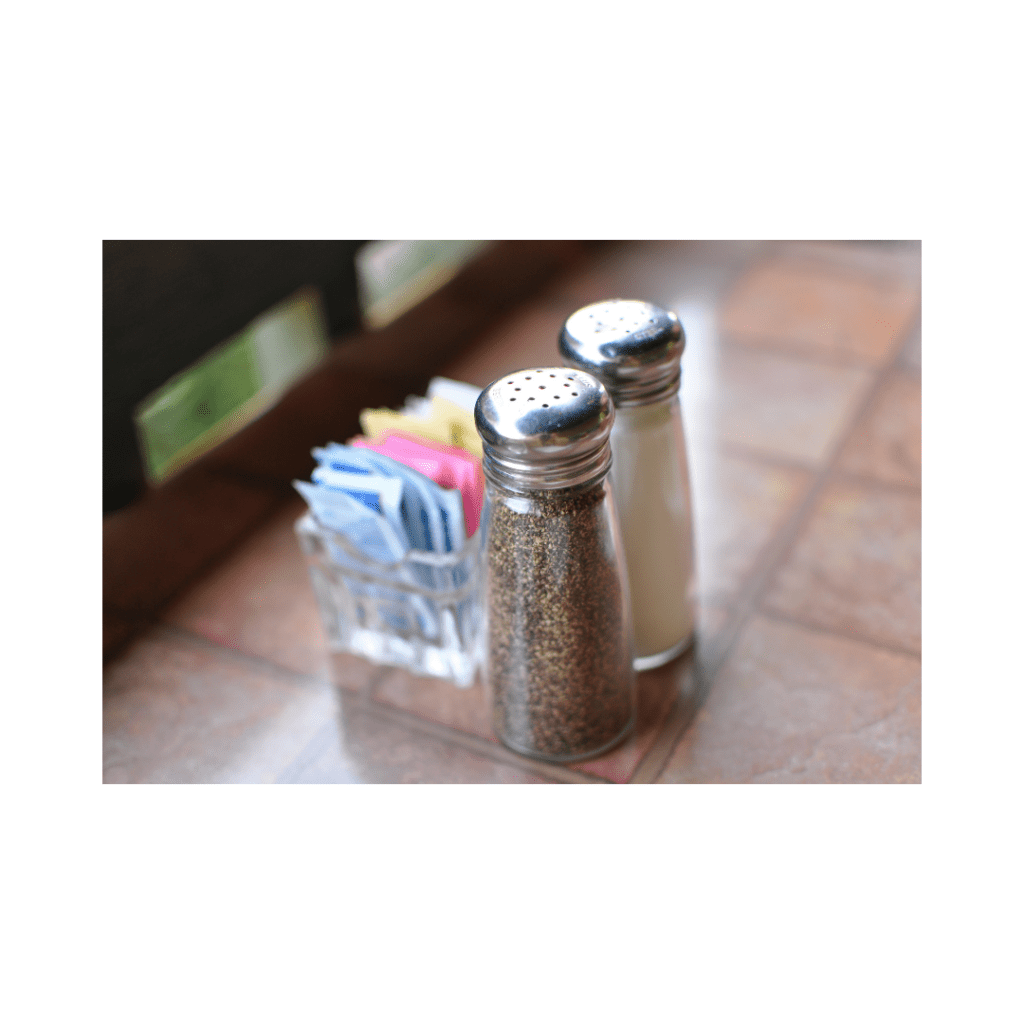
Can Artificial Sweeteners lead to Weight Gain?
Can Artificial Sweeteners lead to Weight Gain?
Do you use artificial sweeteners such as saccharine, aspartame, or sucralose? Thinking they are a healthier option than sucrose. I have never been a big fan of artificial sweeteners or non-caloric sweeteners (NCS) as they are termed. I personally don’t like the taste and I have always questioned the safety and effectiveness of NCS that seem too good to be true. I am here to break it down for you!
A steady rise in the percent of the population who are obese coincides with an increase in the widespread use of NCS, such as aspartame (e.g., Diet Coke) and sucralose (e.g., Pepsi One), in food products.
Many research studies suggest that artificial sweeteners may contribute to weight gain vs. weight loss.
Currently, an ingredient search on foodfacts.com yields 3,648 products containing one or more of the five FDA approved artificial sweeteners. Sucralose is the most popular (1,500 products), followed by acesulfame potassium (1,103 products) and aspartame (974 products). Artificial sweeteners are mostly used in carbonated drinks. They also are found in a variety of other products, from baby food (e.g., Pedialyte) to frozen food (e.g., Lean Pockets). With such a diverse selection, it is more likely that people will encounter artificially sweetened foods when the diet mainly consists of processed and packaged food items.1
Sugar and other caloric sweeteners such as high fructose corn syrup have been cast as the main culprits of the obesity epidemic. Whether due to a successful marketing effort on the part of the diet beverage industry or not, the weight conscious public often consider artificial sweeteners “health food”. But do artificial sweeteners help reduce weight?1
Several large-scale prospective cohort studies (epidemiologic studies) found positive correlation between artificial sweetener use and weight gain.
“The San Antonio Heart Study examined 3,682 adults over a seven- to eight-year period in the 1980s. When matched for initial body mass index (BMI), gender, ethnicity, and diet, drinkers of artificially sweetened beverages consistently had higher BMIs at the follow-up, with dose dependence on the amount of consumption.”1 At one-year follow-up, 2.7 percent to 7.1 percent more regular artificial sweetener users gained weight compared to non-users matched by initial weight. The difference in the amount gained between the two groups was less than two pounds, while statistically significant. Saccharin use was also associated with eight-year weight gain in 31,940 women from the Nurses’ Health Study conducted in the 1970s.1
Consensus from interventional studies suggests that artificial sweeteners do not help reduce weight when used alone. BMI did not decrease after 25 weeks of substituting diet beverages for sugar-sweetened beverages in 103 adolescents in a randomized controlled trial, except among the heaviest participants.1
Preload experiments generally have found that sweet taste, whether delivered by sugar or artificial sweeteners, enhanced human appetite. Aspartame-sweetened water, but not aspartame capsule, increased subjective appetite rating in normal weight adult males. Aspartame also increased subjective hunger ratings compared to glucose or water.1
In rodent studies which I take with a grain of salt or in this case a grain of sugar; These studies pose a hypothesis: Inconsistent coupling between sweet taste and caloric content can lead to compensatory overeating and positive energy balance.1
There is increasing evidence suggests that artificial sweeteners do not activate the food reward pathways in the same fashion as natural sweeteners. Which means that the lack of caloric contribution generally eliminates the postingestive component. The postingestive depends on metabolic products of the food.1
These pilot investigations are consistent with a revised hypothesis: “Sweetness decoupled from caloric content offers partial, but not complete, activation of the food reward pathways. Activation of the hedonic component may contribute to increased appetite. Animals seek food to satisfy the inherent craving for sweetness, even in the absence of energy need. Lack of complete satisfaction, likely because of the failure to activate the postingestive component, further fuels the food seeking behavior. Reduction in reward response may contribute to obesity.”1
In other words, artificial sweeteners can trick our brains into thinking we have consumed calories based on the perceived sweetness but the lack of the caloric/nutritive component of these NCS can contribute to ongoing hunger and an increase in caloric consumption later on.
Lastly, artificial sweeteners, precisely because they are sweet, encourage sugar craving and sugar dependence.1
Some long-term prospective studies raise the concern that the consumption of artificial sweeteners might contribute to the development of metabolic derangements that lead to obesity, T2D, and cardiovascular disease.2
Past studies have also found a harmful impact on the gut microbiome and blood sugar metabolism, swaying gut flora in the direction of the gut bacteria species that promote obesity.
The effects of sweeteners on gut microbiota have not been completely explained. Within NCSs, only saccharin and sucralose shift the populations of gut microbiota. The ingestion of saccharin by animals and humans showed alterations in metabolic pathways linked to glucose tolerance and dysbiosis (an imbalance between the types of organism present in a person’s natural microflora, especially that of the gut, thought to contribute to a range of conditions of ill health) in humans.2
Finally, polyols, as they reach the colon, can induce dose-dependent flatulence, especially in patients with inflammatory bowel disease or IBS. Several polyols, including isomalt and maltitol, increase bifidobacterial (good bacteria) numbers in healthy subjects, and these polyols may have prebiotic actions. On the other hand, different human clinical trials showed that lactitol decreases the populations of Bacteroides, Clostridium, coliforms, and Eubacterium. In addition, lactitol increases the production of butyrate and IgA secretion without signs of mucosal inflammation and presents symbiotic effects. Xylitol reduces the abundance of fecal Bacteroidetes and the genus Barnesiella, increases Firmicutes and the genus Prevotella, and affects C. difficile in mice.2
All in all, sugar alcohols (think anything that ends in an “ol”) seem reasonably safe. I have seen studies where they too can alter the microbiome, but it appears to be in a beneficial manner within the large intestine. I am not a fan of sugar alcohols mostly due to taste and the unpleasant side effects of bloating and flatulence.
What about Stevia?
Even though it is considered a natural and non-caloric sweetener; it cannot be assumed completely safe. Steviol glycosides have a steroidal structure and therefore may have the potential to act as an endocrine disruptor in the body. This can cause further hormone disruption and imbalance. As it can both increase progesterone but also block hormone receptors. Within nutritive sweeteners, only stevia extracts may affect gut microbiota composition.3
Since the jury is still out on artificial sweeteners and even the natural nutritive sweetener Stevia, my recommendation is to eat natural sweeteners in moderation of course, such as honey, maple syrup and raw cane sugar. Check out on my blog post on foods high in sugar and how to avoid them.
Natural sweeteners are sweeter than sucrose, contribute few calories, have no carcinogenic effects, and do not affect insulin production.
